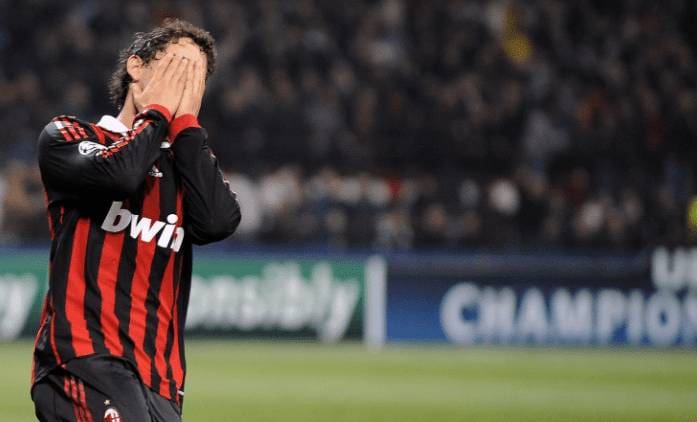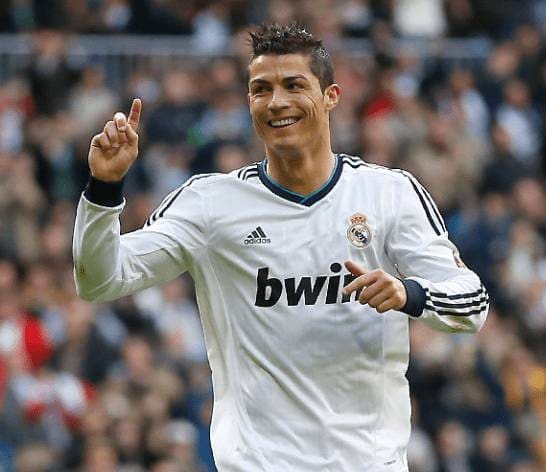The sights and sounds of a football matchday used to be all about the action on the pitch. But walk into many top European football stadiums today, and those experiences increasingly play second fiddle to the constant barrage of gambling branding and marketing.
Massive casino ads plaster stadium exteriors, betting company logos dominate jersey fronts, and bookmaker promotions blare across PA systems. This includes advertising from UK casinos without GamStop as football and gambling have entered into a relationship that is transforming the commercialization of the world’s most popular sport.
The Massive Growth
The past two decades have seen an exponential boom in gambling advertising and sponsorship in football.
According to European Sponsorship Association figures, across Europe’s “top five” football leagues, betting company shirt sponsorships increased from just 3 in 2000 to over 50 by 2016. Currently, 9 of 20 English Premier League football clubs feature a gambling brand as the main shirt sponsor. La Liga in Spain has 7 out of 20.
At the very top, nearly all of football’s biggest clubs boast major sponsorship deals with betting firms:
- Manchester United: Gambling site Bwin
- Real Madrid: Bwin
- AC Milan: Bwin
- Bayern Munich: Sports betting provider Tipico
- Arsenal: Irish bookmaker Paddy Power
This flood of gambling money into football clubs results from legislative shifts allowing the betting industry deregulation, the rise of online betting making access easier, and football clubs constantly needing more revenue. Gambling sponsorship in football has grown exponentially.
Online Gambling Sites
The majority of the growth has been attributed to online sports betting services such as Bet365, which provide rapid access to gambling 24 hours a day, seven days a week.
Bet365 has recently extended their sponsorship agreement with Stoke City by signing a contract for £100 million. Attendees of live events now have easier access to betting options thanks to online betting services. At the London Stadium, home to West Ham United, there are more than one hundred electronic betting kiosks and windows available to accommodate in-game wagering.
Football Fans – A Lucrative Target
According to research, football constantly has the biggest number of bettors across all sports, which makes the fans of football a prime target for bookmakers.
According to a study conducted in 2014, more than sixty per cent of football fans in Spain and Italy frequently participated in gambling activities such as playing casino games and placing bets on sporting events.
The value of gambling activities in Western Europe totals close to forty billion euros each year. Betting websites have an obvious interest in targeting football fans due to their propensity for gambling and their dedication to the teams they follow.

The Big Business
The astounding amounts of money that are involved in the arrangements that have been made between football clubs and gambling companies. Traditional kit manufacturers aren’t the only source of revenue for top teams anymore. Casinos and bookmakers are also sponsoring shirts and stadiums as well.
Huge Deals
The agreement between West Ham and Betway featured a club-record annual payment of £10 million for the naming rights to the stadium. The bet365 contract that Stoke City had was likewise worth approximately £10 million per season. Even lower-tier clubs such as Watford FC make upwards of £5 million annually from various sports betting partners.
The record for the most expensive jersey sponsorship in football is still held by Manchester United, who have a deal with Bwin worth £47 million per year. This puts them at the top of the table. These numbers demonstrate how important gambling companies have become to the financial health of football clubs.
According to James Kent of the sponsorship consultancy GreenWolff Partners, “The spending power of casinos and betting sites focused on the global appeal of football is unmatched.” “You can anticipate more lucrative deals as the number of states that allow betting grows.”
Global Reach
Another reason casinos invest heavily is the marketing power of massive clubs like Manchester United. Partnering with globally followed teams provides worldwide brand exposure and easy access to new markets.
When Bwin signed with Real Madrid in 2007, it mainly sought to grow in Spanish-speaking markets where football reigns. “There is no more powerful marketing vehicle for casinos than partnering with football clubs with global followings,” said gambling marketing expert Natalie Richardson. “It’s the easiest way to reach millions of potential new customers.”
Changing Experience
Walking into today’s top European football stadiums means being surrounded by constant gambling advertising, which alters the live experience. Ambassadors greet visitors and distribute betting vouchers. Kiosks tempting wagers along the concourses. On the way to the seats, gambling pitches on the walls advise on who to bet on.
Looking down the pitch, large sponsor logos and slogans dominate the midfield and centre circle. Pitchside advertisements promote real-time odds and in-play betting. PA team sheet reads are backed by brisk casino sponsor marketing. Bookmakers provide video highlights at halftime.
This deluge of casino branding alters the character of the live experience. While some football fans accept it as a cost of modernity, others mourn the loss of tradition as matchdays become more centred on sports betting rather than appreciating the majesty of top-flight football.
Pitch to Poker
Local bookies once had modest ads. Now, major casino and betting sponsors are centre stage. Arsenal’s Emirates Stadium exterior is lined with huge PaddyPower signs. Cardiff City’s home ground officially changed its name to bet365 Stadium. Pitchside boards flash gambling offers alongside the action.
“Going to football these days feels more like going to a casino,” said avid Manchester City fan David Thomas. “I can barely look at the pitch without seeing a gambling ad.”
Children’s Exposure
With many families attending games, the omnipresence of gambling messages has alarmed child protection advocates. Researchers found under 16 youth exposed to gambling ads were more likely to gamble.
“Football should be wary of exposing underage fans to excessive betting promotion,” said Jane Holmes of Responsible Gambling UK. “Clubs risk encouraging problem gambling.”
Controversies
The massive casino and betting industry investment has also stoked controversies. This backlash comes from both football governing authorities and fan groups who argue gambling promotion has gone too far. Some coaches and players have also voiced displeasure with the distraction and image issues caused by excessive gambling branding.
Integrity Concerns
There is debate among pundits as to whether or not the financial benefits that clubs receive from casinos as part of their sponsorship may ever unlawfully induce them to rig matches.
The leagues maintain that integrity is protected by transparency and regulations. A spokeswoman for the English Premier League highlighted that “these partnerships have revolutionised club revenue,” but that the league also uses “rigorous monitoring” to ensure that its players behave ethically.
Normalizing Gambling
Perhaps the biggest criticism is the role massive football sponsorship plays in normalizing casinos and potentially driving problem gambling. Critics argue aggressively marketing gambling and tying it to fan identity can encourage addictive behaviour. In response, bookmakers contend they promote only responsible gambling to adults.
Commercialism
Some football purists lament the loss of tradition and history as clubs chase revenue through casino ties that seemed unfathomable decades ago. Stadiums like Arsenal’s Emirates lose historic names to corporate sponsors. Others argue commercialism is crucial for clubs to simply survive and remain competitive in modern football.
The Future
If the current gambling boost seems massive, expect the casino-football nexus to grow stronger as legal sports betting expands globally.
Some countries may try to implement restrictions on sports betting ads. But any regulations face obstacles given the industry’s entrenchment. Many ask whether the football-gambling alliance marks a permanent identity shift for the sport, or whether the embrace of gambling partners has gone too far.
“Football is in the midst of its steroids era with these unsustainable sponsorships,” argued commentator Alex Shearer. “At some point, leagues must address proper relationships.» Others maintain gambling and football are now irreversibly bonded, with betting firms sponsoring teams regularly.
Conclusion
Like the balls launched during a dramatic penalty shootout, the trajectory of football’s union with the gambling industry seemingly has passed the point of no return. While casinos provide a financial windfall, their ubiquitous presence risks eroding the sport’s soul.
Fans must hope leagues can balance gambling sponsorship’s profits and principles with integrity. But as the next matchday brings flashing odds and betting promotions permeating the stadium, one thing is clear – the playmakers for football’s growth now reside more in casino counting rooms than on the pitch.




